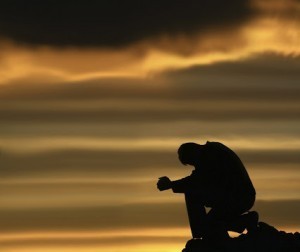Is it True, There Are No Victims?
 In this culture we like winners and disdain losers; we celebrate power and turn away from the powerless. And, we do not like victims. The term victim has even become a dirty word in some circles.
In this culture we like winners and disdain losers; we celebrate power and turn away from the powerless. And, we do not like victims. The term victim has even become a dirty word in some circles.Should someone claim they have been injured or victimized in a relationship—especially if their wounds are not physical, they are met with gasps of surprise, shaking heads or raised eyebrows.
Accused of not taking responsibility for their role in the abuse, they are suspected of wallowing, of staying stuck in a “poor me” mindset, of character assassination, resentment and blame, of denying their flaws, of emotional instability, and, finally, of taking satisfaction from forming a new and exciting identity as a victim!
For most of my life, I have felt this way about victims. I always considered myself a resilient person, bouncing back with some ease from life’s slings and arrows. I could not understand why others did not do the same. That is, until being abandoned fractured my world; and, despite all my efforts, I could not shake the feeling of having been victimized. And I blamed myself mercilessly for these thoughts and feelings.
We can see how absurd the belief in “no victims” is when we consider natural disasters, war, genocide, epidemics, children abandoned or born into poverty or abusive families. Yet, we still rationalize misfortune when it is close to us, often blaming the victim for their plight, clothed in concepts such as sin, karma or the law of attraction.
Victims Reveal our Vulnerability
Why are we so anxious to blame victims? To be a victim implies helplessness and acute vulnerability. By denying victim status, we attempt to chase away our own fears of harmful events. We like to believe we live in a predictable world, a safe and moral universe where our actions have consequences.
If only we live, think and act well, terrible things won’t happen to us. “What goes around comes around” gives us a sense that we have some control over our destiny. I certainly believed that, with all my work on myself and my spiritual practices, I was protected, no matter what. But I was wrong.
The randomness of victimhood scares us. Bad things happen to good people. That misfortune is random and can strike anyone at anytime is terrifying. Blaming the victim offers a last grasp at control. At the deepest spiritual levels there may be some truth that the victim of abuse, accident, or crime shares responsibility for his or her suffering. On the human level, however, when we or someone close to us is suffering, these attitudes act as shields that keep us from compassion, from feeling the pain.
When one’s reality has been shattered, without acceptance of the totality of the event—including the victimhood, helplessness and powerlessness—we cannot fully grieve what has been lost, nor can we fully heal. As survivors of misfortune, or mistreatment at the hands of others, we need to claim our truth—and face the existential chasm it implies—if we are to free ourselves of the consequences.
When fate deals us or someone we love a cruel blow, we are challenged to surrender to powers beyond our control or comprehension. I have learned that acknowledging “I am a victim” can be a statement of profound courage, compassion and insight. From that ground of truth we move forward.
Adapted from Love and the Mystery of Betrayal —now available in print and ebook.
The post Is it True, There Are No Victims? appeared first on .
Published on October 03, 2014 05:00
No comments have been added yet.



